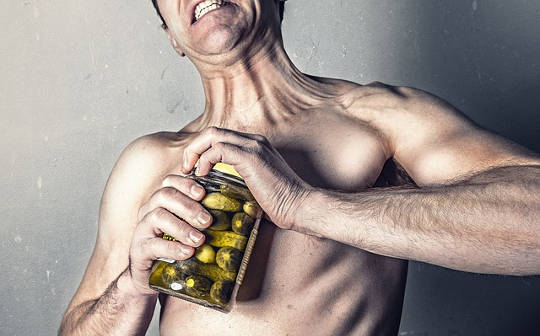
Men are bad at looking after their health, or so the received wisdom goes. Indeed, evidence has shown that men have significantly higher death rates than women from cancer due to delays in seeking medical help.
These doctor-avoiding tendencies have also been shown to be more common among working-class men – who are thought to place more emphasis on “toughness” and are more inclined to take risks when it comes to smoking and drinking. But there is evidence that questions some of these “macho” stereotypes. Men are beginning to look to support groups for help and our own research has pointed to a subtle change in workinmg-class masculinity.
Our study was based on the findings from three focus groups conducted with 15 men, aged 23-68, from three cities in northwest England. The men attended different support groups and experienced disadvantage because of low income and/or mental health difficulties. We asked them to take photographs of what “health” meant to them to aid discussion and we received more than 100 images.
The study found that experience of disadvantage because of low income and mental health issues had encouraged men to engage in what have been called “communities of practice”. These communities emerged within various support groups that were organised around football and mental health, being a father and for people trying to manage on lower incomes. They provide opportunities for men to support each other “informally” outside official, medical and care environments. They also provided opportunities for the men to think as a group about their mental and physical health.
Attitudes observed within these communities suggest a broadening of working-class masculinity that recognises the value of emotional expression and mutual support. They also encouraged group members to question the mental health advice they were receiving from doctors and dominant ideas about healthy eating.
Challenging stereotypes
Men, particularly those in working-class communities, face pressures to be strong: to be “breadwinners” and to control their emotions. But one man who took part in the study – Geoff, aged in his early 50s and from Merseyside – used photographs of his achievements in a football and mental health support group to talk about his recovery from severe mental health problems. He said he recovered thanks to the emotional support available in his community group:
I have no shame whatsoever talking about mental health. Until we can talk as openly about mental health as we do physical health, there will be a stigma and if I can talk about… the dark times… hopefully that touches someone else and makes them reach out for help. One of the most difficult things to say is – like coming out – ‘that’s what it is’. It’s making that admission. Football has been a huge part of my life. It was always where I could be myself. The lads are like any other football team but we take it one step further because not only do we care for each other, we actually counsel each other.
Geoff’s words show how this support group has normalised talking about fears and anxieties. His use of the metaphor “coming out” shows the importance of owning one’s emotional vulnerability. This is a far cry from “manly” suppression of or distancing from so-called “feminine” emotions. Geoff also spoke of the group as helping men to express their authentic emotional selves.
Indeed, Geoff said that for group members football was “their medication”. This was echoed by another study participant. Mike, aged in his early 20s, compared the benefits of the support group in helping him to face bereavement with “the doctors who just give you pills”. And referring to a photograph of himself making papier-maché figures with his children, Darren (early 40s from Manchester) described how sharing thoughts within a self-help group for dads had “helped me bond with my kids” and had helped him “become the dad I am now where I can play with the kids and then get on with housework”.
Community groups can help men facing disadvantages to develop emotional resources. Their stories also show how health is a collective rather than a purely individual enterprise.
Places to relax
Another significant theme appeared in stories about men’s favourite places to relax. Referring to a photograph of his bike on New Brighton Promenade, overlooking the Liverpool waterfront, Daniel explained:
I’ll often peddle to New Brighton. Nine miles there, nine back and it’s just sea and sand all the way. You feel like you’re abroad. So, that’s nice mentally rather than physically. I just look back at the city where I grew up and think about life and it really helps.
Daniel’s words suggest freedom and the view of Liverpool provides emotional as well as physical distance: a space of escape to consider his life’s journey. In all focus groups, men contrasted such places to unhealthy “mean streets” that represented urban blight, hostility, disconnection and social problems.
![]() Contrary to the stereotype, working-class men who belong to support groups are no strangers to seeking help. It’s clear that support groups are helping men get the help they need and they could be key in taking steps towards reducing male suicide rates and addressing wider health issues. But more needs to be done to raise awareness of these groups and more funding needs to be set aside to make them accessible for all.
Contrary to the stereotype, working-class men who belong to support groups are no strangers to seeking help. It’s clear that support groups are helping men get the help they need and they could be key in taking steps towards reducing male suicide rates and addressing wider health issues. But more needs to be done to raise awareness of these groups and more funding needs to be set aside to make them accessible for all.
About The Authors
Paul Simpson, Lecturer in Applied Health & Social Care, Edge Hill University and Michael Richards, Lecturer in Applied Health and Social Care, Edge Hill University
This article was originally published on The Conversation. Read the original article.
Related Books:
at InnerSelf Market and Amazon























